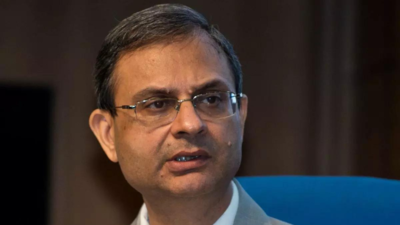[ad_1]

MUMBAI: The rupee hit a record low of 84.86 against the dollar on Tuesday before closing slightly higher at 84.85 – down from Monday’s close of 84.83. Govt bond yields fell, with the 10-year benchmark dropping one basis point to 6.7%.
Sanjay Malhotra’s appointment as RBI governor has fuelled speculation of a dovish monetary policy shift, with analysts expecting a rate cut soon as in Feb. Forex traders forecast the rupee to trade between 84.65 and 85.10 in the near term, with potential of further weakening to 86 by March 2025. Investors remain cautious ahead of the release of US inflation data, which could influence global currency markets.
Analysts expect Malhotra to adopt a dovish stance, raising hopes for lower interest rates. While positive for bonds, this could weigh on the rupee.
“There are three potential changes under the new RBI governor: a likely shift to a more accommodative monetary policy, with a Feb rate cut possible; less pro-cyclical macroprudential policies; and more flexibility in currency fluctuations compared to the tighter leash over the past year,” Sonal Varma of Nomura said.
UBS Asia FX/Rates strategist Rohit Arora highlighted that RBI’s current forex policy has kept rupee volatility low. “With the inflation-growth mix balanced, a major shift seems unlikely. We expect the dollar-rupee pair to grind higher amid India’s weak basic balance, soft equities outlook, and outflows momentum,” added Tanvee Gupta Jain, UBS Securities’ chief economist.
Deputy governor Michael Patra’s term ends next month too, shortly after new external members joined the MPC in Oct. “The MPC is undergoing a reset, with the new governor and the hawkish Patra’s term ending in Jan. Markets view this as dovish, raising chances of a Feb rate cut,” Radhika Rao, a DBS economist, said.
Suresh Ganapathy of Macquarie anticipates a rate cut in Feb as well. “Malhotra’s priorities will likely include addressing growth concerns and stabilising the rupee, which has hit multiple all-time lows,” he added.
[ad_2]
Source link


